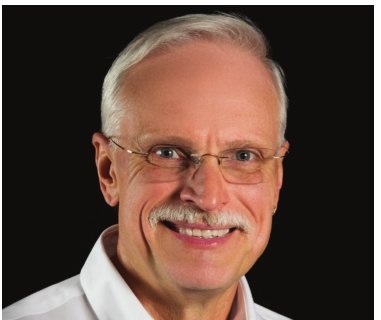
James McClurken: Coming out — as a Christian
Six years ago, James McClurken became an elder at Lansing’s First Presbyterian Church. It brought on a coming-out crisis — but not the one you think.
“It was harder to come out as a Christian than as a gay man,” he cracked. “All of my friends were gay people who had the same attitude toward the church as I do, and most still have good reason.”
After suffering through a Baptist upbringing, McClurken, 62, didn’t have much use for any church. But his then-partner, pianist and recording engineer, Sergei Kvitko, has been deeply involved at “First Pres” for 20 years as organist and music director. They wanted to share that part of their life. “We were the first queer couple to have our church directory picture taken together,” McClurken said. “We held hands.”
That was 15 years ago. Last year, McClurken and Kvitko were married at First Presbyterian. The couple invited all 300 church members, figuring about 50 would come, but 150 members showed up, with about 300 guests in all.
The Potter House, the historic mansion where Kvitko and McClurken live, ran out of food for the first time, if only after three hours of epic grazing.
McClurken and Kvitko make their house and grounds available for hundreds of benefit events, including events benefiting LGBTQ groups.
After McClurken became an elder, First Pres engaged directly with the community, reaching out with food, clothing, counseling, “all the things churches are supposed to do,” targeting the gay community in particular.
At First Pres and other affirming and welcoming churches, people who thought they could never be part of a spiritual community feel included.
“It brought a lot of people who grew up like me, in a church, and made it a place to go where they’re safe,” McClurken said. It might even make it easier for gay people to come out as Christian.
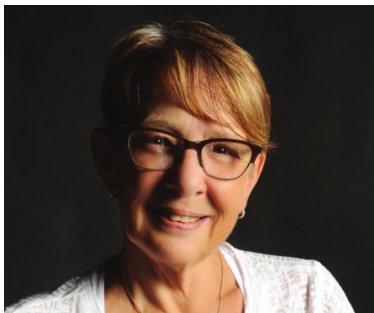
Roxanne Frith: Just being authentic
In the 40-plus years since artist/activist Roxanne Frith came out as bisexual, and later as a lesbian, being gay has gradually become less of a big deal. But after the June 12 massacre at Orlando’s Pulse nightclub, she felt like a target all over again.
“I had a sense of, ‘Wow, I haven’t felt unsafe since I ran away from home as a teenager,’” she said. “The current climate, those hatreds and biases, the fever of fear has been stirred up, and to me, that’s a call for even more action.”
As a precocious 16-year-old photographer growing up in rural Nashville, Mich., Frith grabbed the chance to take classes at Lansing Community College, where she still teaches photography.
“Being interested in girls in a small town wasn’t safe,” she said. “That was part of it.”
Lansing was a revelation to her. Gay and lesbian-owned galleries, businesses and organizations thrived in Old Town in the 1980s and ‘90s.
“Between the gay community and the women’s community here, my goodness, 48912 was a code in lesbian music,” she said.
She transferred to Tuscon in 1982 to finish a bachelor’s degree, then plunged into activism in the mid-1980s.
“We were losing our friends and Reagan hadn’t even said the word AIDS yet,” she said. “I took care of a friend and helped him to die. That instilled in me that it was really important, being aware and being active.”
In Lansing, Frith, 58, has supported LBGT causes in hundreds of ways, from serving as a Michigan Pride photographer for 10 years to “just living out, not flagrantly, not wearing a big L on my arm, but just being who I am, just being authentic.”
After several rounds of serious illness, including a kidney transplant, she’s still on the scene as artist and activist. She’s planning a new exhibit of photographs and a new round of LGBT outreach to area schools.
“I’m not one of the front-end people, but I’m there,” she said.
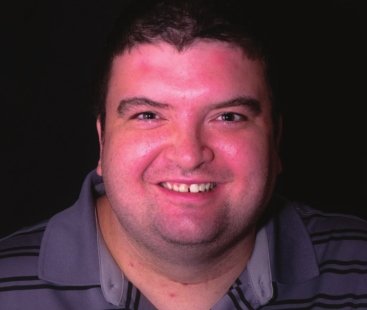
Frank Vaca: ‘Hate is hiding’
Lansing prides itself on being welcoming to LGBTQ community, but activist Frank Vaca is content living in the nearby, semi-rural town of Potterville, amid grain silos, fried gizzards and frequent train derailments. He called Potterville a “do not ask, do not tell” place, but he likes to keep it real.
“I find it comfy to live in a place where you can get your scenic views,” he said.
Vaca volunteers for several Lansing-based organizations and avidly tracks the image of LGBT life presented in the media. Lately he’s been caught up in a “best of times, worst of times” mood following the Supreme Court’s same-sex marriage ruling and the Pulse nightclub massacre in Orlando.
“It’s a perplexing issue,” he said. “You can get married one day, and fired the next, or harassed or killed,” he said.
When Vaca, 34, came out at 18, his family’s reaction was divided. His mother’s family was supportive, but his father’s was “a totally different story.”
“I hated myself and questioned whether I fit in,” he said.
In 2005, he took a course on diversity in the workplace at Lansing Community College and met older Lansing-area activists such Penny Gardner and “the great Todd Heywood,” Vaca’s epithet for the City Pulse reporter and fellow Inclusion Award recipient.
“Todd made me settle down, get a drink now and then and be comfortable in my own skin,” he said.
Before long, Vaca himself became a mentor in his “baby project,” LCC’s Gay-Straight Alliance.
In the fight for LGBT equality, thousands of small local victories go along with the big national ones. In 2010, LCC started cleaning its bathrooms, keeping track via maintenance sheets, thanks in part to pressure from Vaca, who was appalled by the antigay graffiti he saw.
“I didn’t realize how much hate is hiding until I really looked on those walls,” he said.
He has run into a couple of students who tried to “convert” him. “It makes for great conversation,” he cracked.
As he works toward a bachelor’s degree in business administration at Davenport College, Vaca plans to keep on being an activist “and just enjoying life and finding out exactly where I do belong.”
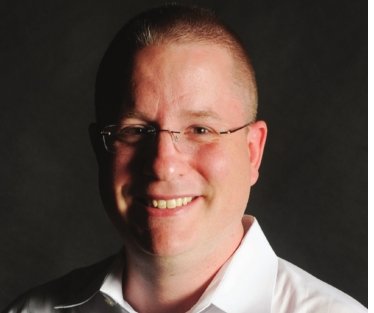
Erik Wert: Fighting health care disparity
People talk loosely about how violence, injustice, hate and ignorance make them sick.
To Erik Wert, medical director of the Ingham Community Health Center, that’s not just a figure of speech. The legalization of samesex marriage, widely touted as the endpoint of the fight for equality, has barely put a dent in the health problems that plague the LGBT community.
“People don’t realize that there are still so many structural barriers that are there,” said Wert, 43. “You can marry your partner one day and be fired from your job the next.”
Transgendered people, “a minority within a minority,” are of special concern to Wert. He was shocked by studies showing that 19 percent of transgender people have been denied health care because of who they are.
“Until that changes, there’s going to be stress, which leads to anxiety, which leads to health care disparity,” Wert said.
Under Wert’s leadership, the Ingham County Health Clinic provides a ground-breaking Pre- Exposure Prophylactics, or PrEP, program. The clinic, one of the few providers of PrEP in Ingham County, takes referrals from many private offices and organizations, including the Lansing Area AIDS Network.
To Wert, medication and treatment programs go hand in hand with intangibles such as making clinics welcoming for LGBT people.
Training in culturally competent care is mandatory for everyone at the Forest Hills clinic on South Cedar Street. Front office workers learn how to sensitively collect sexual orientation and gender identity data. The office is designed so nobody can tell which doctor a patient is seeing.
Wert and his team even created workarounds in rigid computer programs to better serve transgender patients. “If my medical assistant walks out to talk to a patient, a warning pops up so they know the name, the pronouns they want to go by,” Wert said. “That’s a big step for medicine. When I went to med school, there was no information on transgender health, and their health outcomes are horrible.”
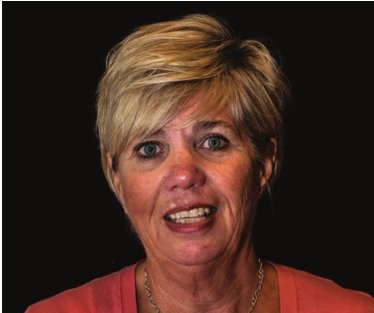
Kathy Taskey: The Rainmaker
Do super-organized, hyper-motivated people rub you the wrong way? The aptly named Kathy Taskey, a longtime supporter of Michigan Pride and other LGBT groups, might be the first of her ilk to win you over.
“God, she’s tireless,” fellow Michigan Pride volunteer Michelle Taylor said. “Everything she does comes off well. She is the pre-planner, with spreadsheets. She’ll plan an event a year ahead of time.”
A golf outing that Taskey, 58, started six years ago with nine teams has grown to 36 teams swarming over a 27-hole course. Three years of euchre tournaments, four each winter, at Harry’s Place, have often filled the bar to overflowing.
“She makes it exciting and fun for people,” Taylor said. “She’s got sponsors to the point where they come to her and ask what’s going on and if they can sponsor it the next year. She’s a rainmaker.”
Taskey’s newest event, a bowling tournament, raised over $3,000 in its first go-round last year.
Robert Mathis, a Michigan Pride board member for four years, called her a “powerhouse.”
“She spent countless hours planning these events, getting sponsorships, items for silent auctions,” Mathis said. “What’s incredible is she wasn’t on the board of Michigan Pride. She worked behind the scenes and didn’t expect any recognition.”
Taskey said she considers her Inclusion Award a group award, not hers alone.
She still has a lot on her agenda. She sees a crying need for a community center where LGBT teens and the children of LGBT parents can hang out, recreate themselves and get counseling. Recent advances in LGBT legal status, culminating in the Supreme Court’s samesex marriage ruling, haven’t changed daily reality for many LGBT teens.
“Bullying didn’t go away because things changed,” Taskey said. “We still need to be able to fund community-spirited events and things to help those kids, to get schools to understand. Just because it’s gotten a little bit easier .doesn’t mean any of that work goes away.”
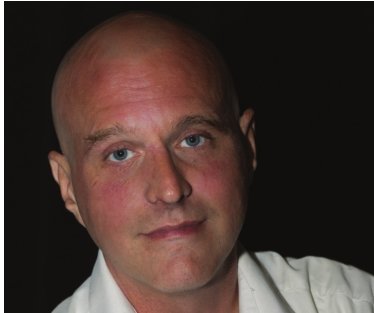
Todd Heywood: Truth teller
It may raise an eyebrow or two that City Pulse is bestowing one of the first annual Inclusion Awards on one of its own, reporter Todd Heywood.
Can we help it if a local, state, and national treasure happens to hang out in our own backyard? Heywood’s relentless truth telling and activism, in the face of several ugly and life-threatening experiences, is well known in Lansing’s LGBTQ community and beyond. Don’t take our word for it. Last week, the national online magazine HIVPlus named Heywood, 46, No. 12 of its 75 Most Amazing HIV-positive People of 2016. The field is pretty large — about 1.2 million people.
The crimson thread that runs through Heywood’s many endeavors — as activist, journalist and award-winning theater actor — is truth telling.
Heywood tracks the cultural, legislative and medical dimensions of LGBTQ life in City Pulse, Between the Lines and other publications with a relentless eye for hypocrisy and injustice. His passionate personal accounts of a recent hate-crime assault and his reaction to the Supreme Court’s same-sex marriage ruling are must-reads.
Several times a year, Heywood gives popular talks about HIV at campuses and to groups around the state.
He’s been told, even by the board of Michigan Pride, that it’s too “depressing” to talk about HIV, but his message is one of promise. His biggest concern is access to preventive drugs, referred to as PrEP, that many young gay men don’t even know about.
“Between treatment and prevention, we have the tools in our hand to end this epidemic within a decade,” he said.
Heywood isn’t known for dancing around sensitive subjects. His incisive talks bluntly confront gay men’s sex lives, with names like “Raw Deal: Barebacking in America.” It’s a never-ending battle for basic equality. We’ve been hearing in exquisite detail about heterosexual couples’ sex lives for decades already.
“The average American’s understanding of HIV is still at the 1987 level,” he said. “People still think you can get HIV from a swimming pool.”
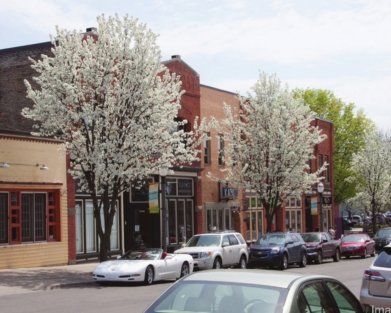
Old Town Commercial Association: A safe place
The Old Town Commercial Association can’t enforce tolerance. It’s up to property owners in Lansing’s burgeoning historic district whether they want to sign a lease with someone.
Fortunately, no enforcer is needed — but a drum beater comes in handy. OTCA promotes the area’s welcoming vibe right along with its nuts-and-bolts support programs for fledgling and established businesses.
From the pioneering galleries and bookstores of the 1970s to the boutiques and foodie-friendly eateries and bars of today, the welcome mat has been out for LGBT-owned and gay-friendly businesses for a long time.
“The arts community and the LGBT community are what started Old Town,” Jamie Schriner-Hooper said. “They were one and the same.”
Schriner-Hooper is president of the OTCA board and served as OTCA director for five years.
“It’s been a safe place for the community to gather,” Schriner-Hooper said. “That’s what attracted me to it and what’s attracted so many other people.”
Vanessa Shafer, named OTCA’s newest director in July, said that welcoming attitude “radiates from everyone here.”
“It’s one of the biggest things that drew me to this job,” Shafer said.
A quick walk up and down Turner Street and Grand River Avenue takes you past a variety of gayowned businesses, including Tony Sump’s Leopold Bloom & Co. resale shop, Dannie and Ted Stewart’s Metro Retro, Doug Meeks of the Cataldo & Meeks law firm, Brad Rakowski’s Bradly’s Home and Garden, Terry Grant’s accounting offices, Matthew Ryan’s salon and the two focal points for LGBT life in greater Lansing, Spiral Dance Bar and the Esquire Bar.
Far from being a public service, Old Town’s wellknown embrace of the LGBTQ community is a selling point for businesses and their clients.
Summer Schriner, owner of Grace Boutique, pointed out the exodus of businesses from Southern states where legislatures enact laws hostile to the LGBTQ community.
“Frankly, I’m glad to see that happen,” Schriner said. “That’s tied to the success of Old Town. When you discriminate against people, you not only lose their friendship, but you lose their business.”

‘Rent:’ A thousand sweet kisses
Last June, Director Kelly Stuible-Clark brought cast members from Riverwalk’s Theatre’s production of “Rent” to perform four songs from the show at a Sunday service at the First Congregational UCC Church in Grand Ledge. Hearing lyrics such as “I’ll cover you with a thousand sweet kisses” smack the church walls on a Sunday was only one of the morning’s delights. By the time the collection plate went around, about $500 were raised for the Lansing Area Aids Network.
“Nobody blinked an eye about us bringing this show that was a little bit taboo, a little bit risqué, to a church service,” Stuible-Clark said. “I was impressed.”
On June 8, Riverwalk mounted a tearful benefit performance of “Rent” for the Lansing Area AIDS Network. That benefit, along with nightly donations accepted in the lobby and the church benefit, raised about $5,000.
Numerous friends and family of people who died of AIDS were in the audience. Several cast members had lost loved ones as well.
“The cast felt it,” Stuible-Clark said. “They were all in tears at the end.”
A few days later, the cast finished its matinee performance at Riverwalk then performed again at a 6 p.m. vigil for the victimes of the Orlando shooting.
Community support for the show was impressive. Two decades after “Rent” caused a sensation on Broadway, its message of affirmation still resonated with Lansing audiences.
“It’s a celebration, recognizing there are same-sex couples among your friends, your family,” Stuible-Clark said. “A few older people would leave at intermission, but that just could be because it was a loud rock musical.”
City Pulse LGBTQ Inclusion Awards Party and Ceremony
7 p.m. to 9 p.m. Friday, Aug. 26 Cocktail party 7 to 8; awards ceremony 8 to 9. Spiral Dance Bar, 1247 Center St., Lansing Tickets, $20 in advance, $25 at the door. Includes White Party wristband ($10 value), two drinks and food. In advance: www.lansingcitypulse.com or call Suzi at (517) 999-6704
Support City Pulse - Donate Today!
Comments
No comments on this item Please log in to comment by clicking here